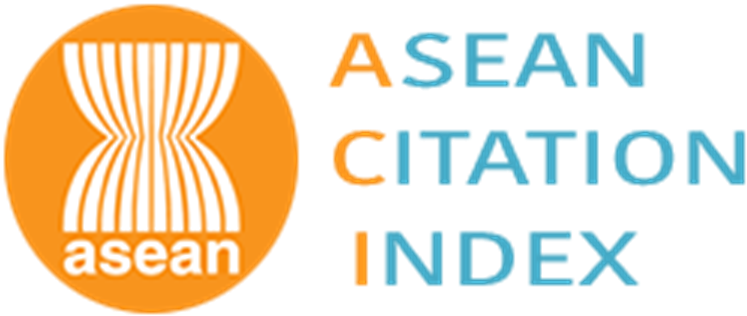The Development of Potential Model for Software Engineer in the Digital Industry for the Industrial Business Competitiveness in the Digital Economy Era
Abstract
เทคโนโลยีดิจิทัลกำลังพลิกผันสังคมมนุษย์ให้เข้าสู่ยุคเศรษฐกิจดิจิทัล ส่งผลให้องค์กรธุรกิจจะต้องใช้วิศวกรซอฟต์แวร์เข้ามาเปลี่ยนแปลงการดำเนินธุรกิจขององค์กรให้สอดคล้องกับการเปลี่ยนแปลงดังกล่าว แต่ประเทศไทยกำลังเผชิญกับปัญหาขาดแคลนวิศวกรซอฟต์แวร์ที่มีศักยภาพในตลาดแรงงาน องค์กรธุรกิจจึงต้องให้ความสำคัญกับการพัฒนาศักยภาพวิศวกรซอฟต์แวร์ให้เป็นผู้ผลักดันและขับเคลื่อนการดำเนินธุรกิจให้ประสบความสำเร็จได้ตามเป้าหมาย การวิจัยในครั้งนี้จึงมุ่งศึกษาองค์ประกอบศักยภาพที่จำเป็นของวิศวกรซอฟต์แวร์ในการทำงานเพื่อสร้างศักยภาพให้แก่องค์กรธุรกิจในยุคเศรษฐกิจดิจิทัล เพื่อให้องค์กรธุรกิจมีรูปแบบการพัฒนาศักยภาพของวิศวกรซอฟต์แวร์ที่ถูกต้องและเหมาะสมในการนำไปใช้ในทางปฏิบัติ โดยการวิจัยใช้เทคนิคเดลฟายและการประชุมสนทนากลุ่ม เพื่อวิเคราะห์องค์ประกอบศักยภาพที่วิศวกรซอฟต์แวร์จำเป็นจะต้องมีในการทำงาน และจัดทำรูปแบบศักยภาพของวิศวกรซอฟต์แวร์ในกลุ่มอุตสาหกรรมดิจิทัลเพื่อการแข่งขันในยุคเศรษฐกิจดิจิทัล ซึ่งผลการวิจัยพบว่า องค์ประกอบศักยภาพที่ผ่านเกณฑ์ฉันทามติของการวิจัยด้วยเทคนิคเดลฟายเป็นองค์ประกอบด้านความรู้จำนวน 11 องค์ประกอบ คิดเป็นร้อยละ 15.71 องค์ประกอบด้านทักษะจำนวน 21 องค์ประกอบ คิดเป็นร้อยละ 30.00 องค์ประกอบด้านคุณลักษณะที่พึงประสงค์ 24 องค์ประกอบ คิดเป็นร้อยละ 34.28 และองค์ประกอบที่ผ่านเกณฑ์ฉันทามติมาพัฒนาเป็นรูปแบบศักยภาพของวิศวกรซอฟต์แวร์ ซึ่งองค์ประกอบด้านความรู้ ประกอบด้วย ความรู้เกี่ยวกับโค้ดและการประมวลผล ความรู้เกี่ยวกับเครื่องมือในการพัฒนาซอฟต์แวร์ ความรู้เกี่ยวกับกระบวนการพัฒนาซอฟต์แวร์ ความรู้เกี่ยวกับโครงสร้างพื้นฐานของซอฟต์แวร์ ความรู้เกี่ยวกับธุรกิจ และความรู้เกี่ยวกับการพัฒนานวัตกรรม ส่วนองค์ประกอบด้านทักษะประกอบด้วยทักษะในการพัฒนาซอฟต์แวร์ ทักษะในการออกแบบซอฟต์แวร์ ทักษะด้านกระบวนการคิด ทักษะด้านการจัดการ ทักษะด้านการสื่อสาร และทักษะภาษาอังกฤษ และในองค์ประกอบด้านคุณลักษณะที่พึงประสงค์ประกอบด้วยความรับผิดชอบในงาน พฤติกรรมที่ส่งเสริมความสำเร็จในการทำงาน การพัฒนาตนเอง การทำงานเป็นทีม ความคิดสร้างสรรค์เชิงนวัตกรรม และความเป็นผู้นำ
Digital technology is disrupting human society to be the digital economy era. As a result, business organizations have to employ software engineers to change the organization's business operations to be in line with such changes. However, Thailand is confronting a shortage of potential software engineers. The business organizations must therefore give importance to development of software engineers to make the software engineers to be the ones who can drive business operations to be successful and achieved their targets. This research aims to study the necessary potential components of software engineers to build the potential of business organizations in the digital economy era and to provide business organizations an appropriate model for software engineers’ potential development for the proper use in practice. This study uses Delphi technique and focus group discussion to analyze the potential components that software engineers need to have in their work and create a model for the potential of software engineers for the industrial business competitiveness in the digital economy era. The results of the research found that the potential components that meet the consensus in the Delphi technique were 11 knowledge components (15.71 percent), 21 skill components (30.00 percent), and 24 attributes components (34.28 percent). The components that meet the consensus criteria were used to create a potential model for software engineers, which knowledge comprised of code and algorithm, software development tools, software development processes, software infrastructure, business which is developing the software and innovation development. Key skills include software development, software design, cognitive abilities, management, communication, and English proficiency. Essential attributes encompass accountability, professional work ethics, self-development, teamwork, innovative creativity, and leadership.
Keywords
[1] C. Loetamnatkitseri, “Digital economy: Emergence and evolution,” MCU Peace Studies Journal, vol. 10, no. 5, pp. 2273–2283, 2022 (in Thai).
[2] M. Tongmak. (2021) Digital Technology for Business. [Online] (in Thai). Available: http://mdc. library.mju.ac.th/ebook/9786165861090.pdf
[3] Thairath Online. (2016). Crack the Code for “Thailand 4.0” to Create a New Economy Overcoming the Middle Income Trap [Online] (in Thai). Available: https://www.thairath.co.th/ business/613903
[4] Digital Economy Promotion Agency. (n.d.). The Digital Economy Situation Analysis. [Online] (in Thai). Available: https://www.depa.or.th/th/ article-view/thailand-digital-economy-glance
[5] Digital Economy Promotion Agency. (2022). The Digital Economy Situation Analysis. [Online] (in Thai). Available: https://www.depa.or.th/th/ article-view/thailand-digital-economy-glance
[6] Prachachat. (2023). Southeast Asia University Launches the Courses to Develop Software Engineers and Web Developers to Enter the Market. [Online] (in Thai). Available: https:// www.prachachat.net/education/news-1362431
[7] Prachathai. (2018). Pointing out that The Number of Digital Workforce is High but It Actually Works Very Little and Contrary to the Demands of the Business Sector. [Online] (in Thai). Available: https://prachatai.com/ journal/2018/05/76929
[8] T. Weerakhajornpong. (2023). Guidelines for Maintaining Tech Talent in The Time of Severe Shortage Crisis. [Online] (in Thai). Available: https://www.thaipr.net/it/3364186
[9] B. Inrun, “Developing model of digital technicians competencies in digital industries,” D.B.A. thesis, Industrial Business and Human Resource Development, King Mongkut’s University of Technology North Bangkok, 2021 (in Thai).
[10] N. Tebrod, “The management potential development model for artificial intelligence technologists in the public sector,” D.B.A. thesis, Industrial Business and Human Resource Development, King Mongkut’s University of Technology North Bangkok, 2021 (in Thai).
[11] T. Silpcahru, Research and Statistic Data Analysis by SPSS and AMOS. Bangkok: S. R. Printing Massproducts Company Limited, 2017 (in Thai).
[12] C. Charutwinyo, “Competency model of software developer in Thailand : A qualitative exploration,” Advanced Trends in Computer Science and Engineering International Journal, vol. 10, no.3, pp. 1524–1532, 2021 (in Thai).
DOI: 10.14416/j.kmutnb.2025.04.001
ISSN: 2985-2145





